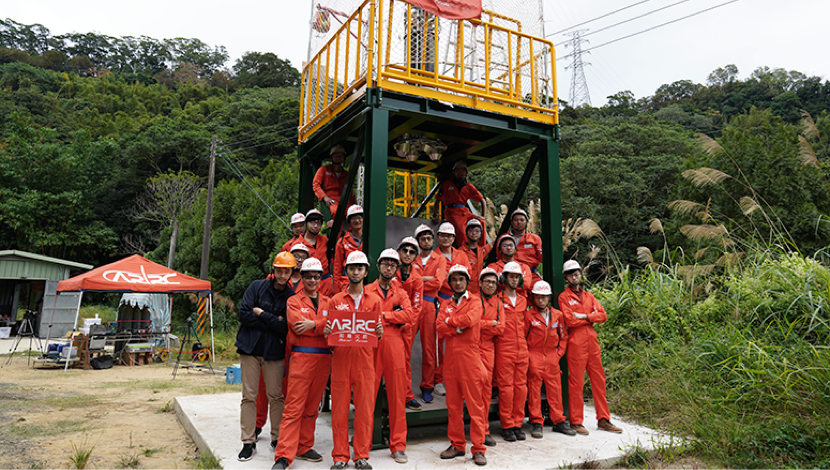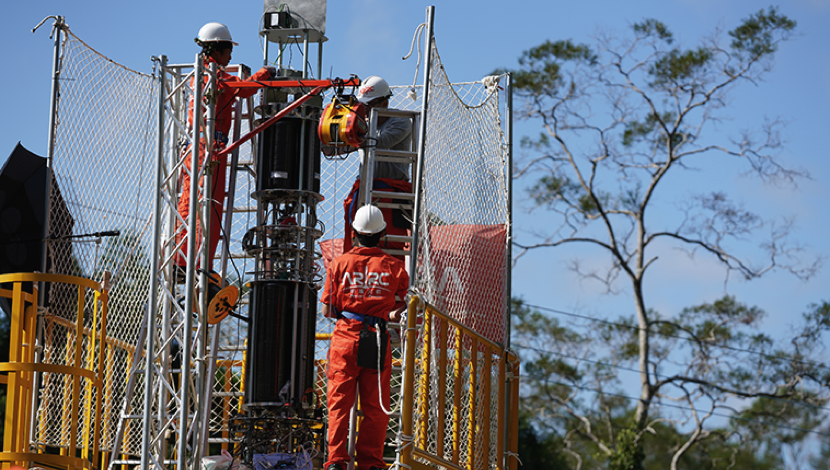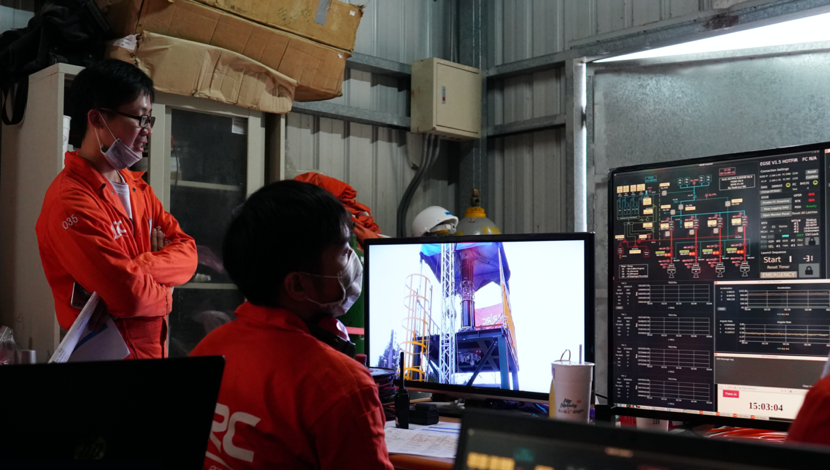HTTP-3A 2nd stage vertical hot fire test
On Saturday, November 23, ARRC has successfully carried out the HTTP-3A Stage-2 Hybrid Rocket Engine Vertical Hot-Fire Test-1,which tested the thrust vector control with throttling for 30 seconds.
Unlike traditional sounding rockets which utilize the rear wings for spin stabilization, satellites generally use thrust vector control to manipulate the attitude and trajectory of the rocket flight. This will also be the method that we use to verify the technical power of future satellite launches. Not only is this one of HTTP-3A's main objectives, but it also leaves a mark in history as the world's first hybrid rocket engine that implements a thrust vector control system.
HTTP-3A is expected to be the long-awaited launch since 2014, which will also be the fifth flight test of the HTTP series, rockets that use hybrid rocket boosters. The launch which is scheduled to take place in July 2021 is expected to pass the Karman line (100 km), which will officially mark the beginning of Taiwan's space exploration.
The test process lasted for two days, so every fragile hardware was taken down from the vertical hot fire test stand before nightfall to avoid the moisture. As the weather cleared up on the second day, the boosters were reassembled on the test stand before we carried out the hot fire test. Next, let's take off from the ground!











